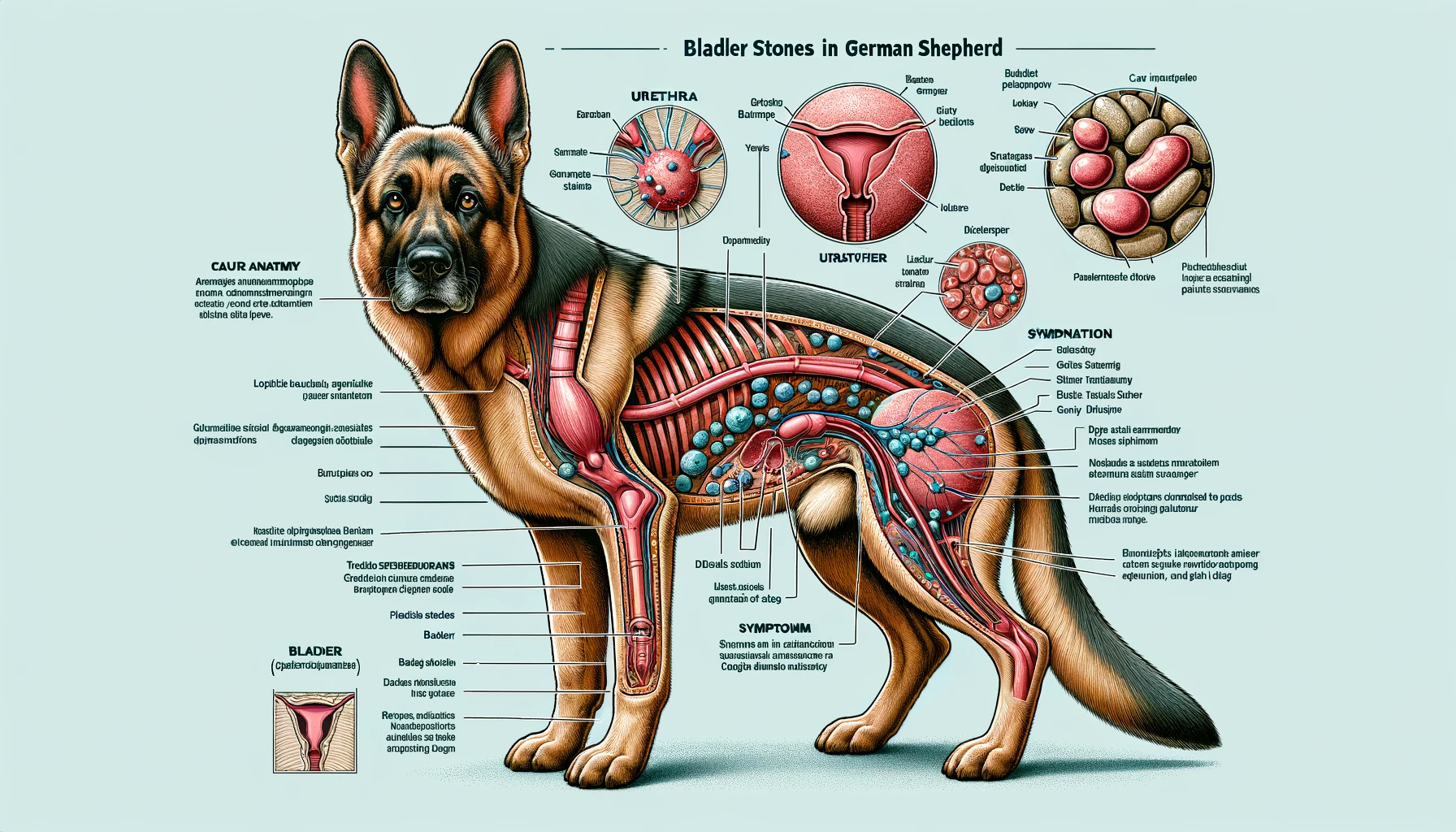Introduction to German Shepherd
History and Origin
German Shepherds, known for their intelligence, courage, and versatility, originated in Germany in the late 19th century. Max von Stephanitz, hailed as the father of the breed, aimed to develop a dog that embodied unparalleled working abilities, intelligence, and loyalty. By breeding various herding dogs from rural Germany, Stephanitz created the German Shepherd, which quickly gained recognition for its adaptability and work ethic. Initially used for herding and guarding sheep, their roles expanded during World War I. They served as rescue dogs, messengers, and military roles, showcasing their broad capabilities and solidifying their worldwide reputation.
General Characteristics
German Shepherds are distinguished by their robust and agile physique, keen intelligence, and noble character. Typically standing 22-26 inches tall at the shoulder and weighing 50-90 pounds, they possess a dense, water-resistant outer coat and a softer undercoat. Known for their confident and calm demeanor, they are highly loyal to their families, making them excellent companions. Their intelligence and eagerness to learn make them highly trainable, excelling in roles beyond herding, including police and service work.
Why They Stand Out
What sets German Shepherds apart is not just their physical prowess but their remarkable versatility and emotional intelligence. They are profoundly loyal, protective, and capable of forming deep bonds with their owners, making them more than just pets; they are devoted companions. Their utility in fields such as law enforcement, search and rescue, and as service dogs for those with disabilities speaks volumes about their intelligence, trainability, and adaptability. This breed’s ability to excel in numerous roles, combined with their unwavering loyalty and affection, makes them a standout choice for many owners and tasks.
Understanding German Shepherds
Physical Attributes
German Shepherds are renowned for their striking appearance and robust build. They possess a double coat, with the outer layer being dense and straight and an undercoat that is soft and thick providing insulation. Typically, their color ranges from black and tan to sable, although all-black and all-white variants exist. These dogs are large, with males standing between 24 and 26 inches at the shoulder and females slightly smaller at 22 to 24 inches. Their muscular physique and agile form enable them to perform demanding tasks, making them favorites in police and military roles. The breed’s expressive, almond-shaped eyes and erect ears convey intelligence and alertness, epitomizing their keen sense of observation.
Temperament and Personality
German Shepherds are characterized by their loyalty, courage, and confidence. They are brilliant, making them exceptionally trainable. This breed thrives on companionship and enjoys being part of family activities, showing a protective nature towards their loved ones. German Shepherds are known for their versatility, serving as working dogs or family pets. They require mental stimulation and physical activity to stay content. Early socialization and training are crucial to manage their protective instincts and ensure they are well-adjusted, friendly pets. Their strong bond with their owners and a natural inclination towards obedience makes them one of the most reliable and devoted breeds.
Health Considerations
Like all breeds, German Shepherds have predispositions to specific health conditions. Hip and elbow dysplasia are expected, alongside other potential issues such as degenerative myelopathy and bloat. Regular veterinary check-ups, a well-balanced diet, and adequate exercise can help mitigate these risks. It’s also important to consider genetic testing when selecting a breeder to ensure the healthiest possible start in life. Their lifespan typically ranges from 9 to 13 years, and with proper care, German Shepherds can lead active lives. Prospective owners should be prepared for the responsibility of maintaining their health through regular exercise, preventive veterinary care, and attention to any signs of discomfort or illness.
Caring for Your German Shepherd
Nutrition and Diet
A balanced diet is crucial for maintaining the health and vitality of a German Shepherd. These active dogs require high-quality protein-rich food to support their muscular build and energy needs. Whether you choose commercial dog food or a home-cooked diet, it should be appropriate for their age, size, and activity level. Puppies, adults, and senior dogs have different nutritional requirements, so it’s important to adjust their diet as they age. Regularly consulting with a veterinarian can ensure their dietary needs are met, helping prevent obesity and other health issues.
Exercise Requirements
German Shepherds are known for their high energy and stamina, necessitating regular exercise to maintain their physical and mental well-being. A daily routine should include walks, runs, or play sessions, totaling at least one to two hours of activity. This breed excels in activities that challenge them mentally and physically, such as agility training, tracking, and obedience. Adequate exercise helps prevent boredom-induced behaviors like chewing and barking, fostering a happier, more balanced dog.
Training and Socialization
Training and socializing a German Shepherd from a young age are pivotal in shaping a well-behaved adult dog. These intelligent canines are eager to learn and respond well to positive reinforcement techniques. Early socialization exposes them to various people, animals, and situations, promoting confidence and preventing aggressive or fearful behavior. Consistent training strengthens the bond between dog and owner, making them responsive and manageable in different environments.
Grooming and Health Care
German Shepherds have a double coat that requires regular grooming to minimize shedding and maintain skin health. Weekly brushing and occasional baths keep their coat in good condition. They are prone to specific genetic health issues, such as hip dysplasia and bloat, so regular veterinary check-ups are essential. Maintaining their health also involves staying up-to-date with vaccinations, parasite prevention, and dental care, ensuring your German Shepherd’s long, healthy life.

